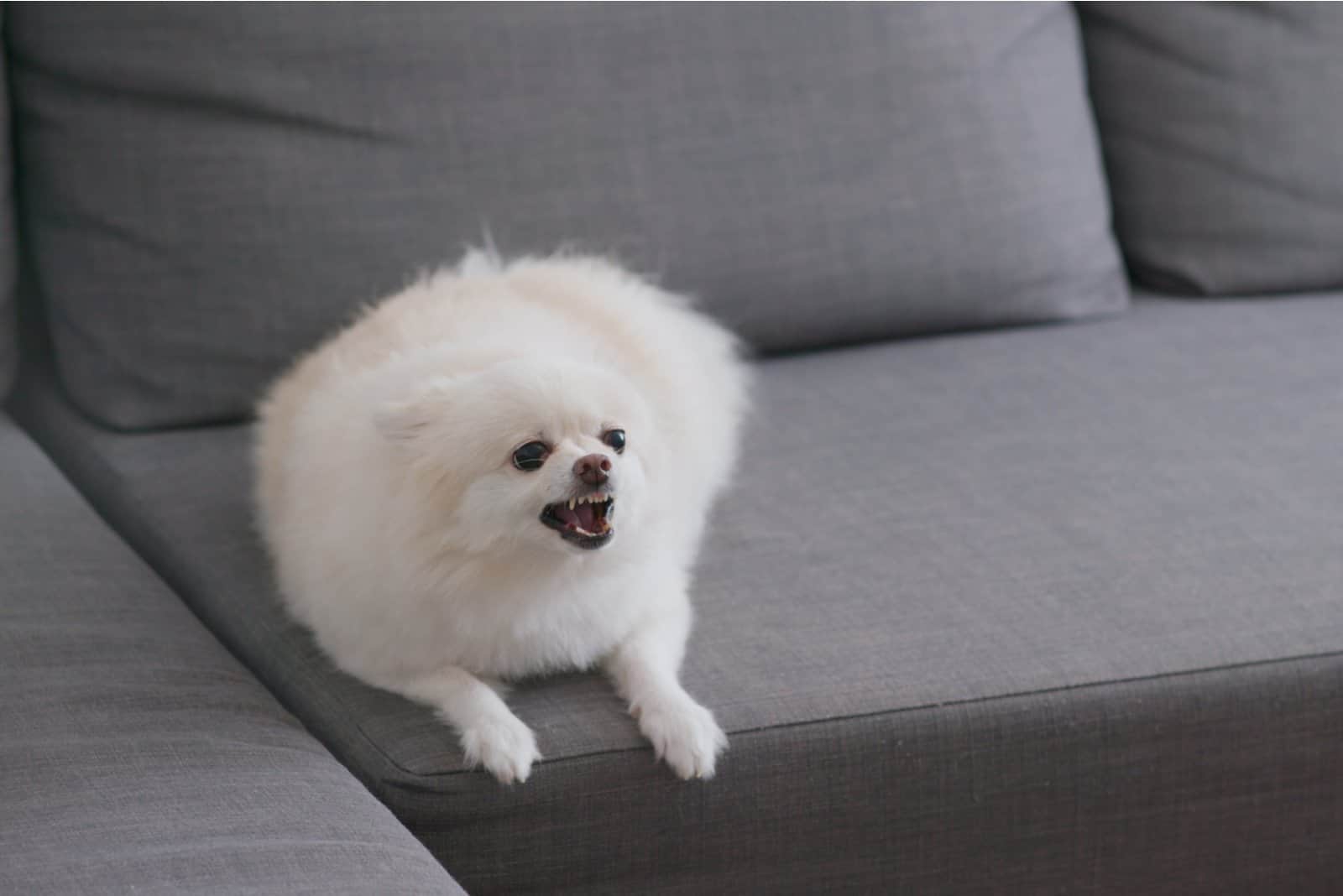No one knows your furry friend better than you. From the day you started sharing a life together, you have been able to recognize when your dog is happy, excited, or sad. But, one of the hardest things that any pet owner has a hard time dealing with, is seeing fear in his pet.
Is your dog suddenly scared of something in house? Is he otherwise playful and still eagerly awaiting your return from work at the front door, but something has changed?
You can conclude a lot about the mental state of your pet from their body language. So, if you notice a turned tail and a frightened look in your pet, it is very possible that your dog is scared of something in the house or has encountered something he had a bad experience with in the past.
Whatever the reason is for his scare, I’m sure you don’t want to watch your pet be unenthusiastic about his daily activities and have a frightened look on his face.
All you want is to give your puppy a safe and comfortable home, right? To help you do that, today’s article will bring you some reasons why your dog could suddenly be frightened in your home and, most importantly, the ways in which you can help him to overcome his fear.
Dog Suddenly Scared Of Something In House: Why?
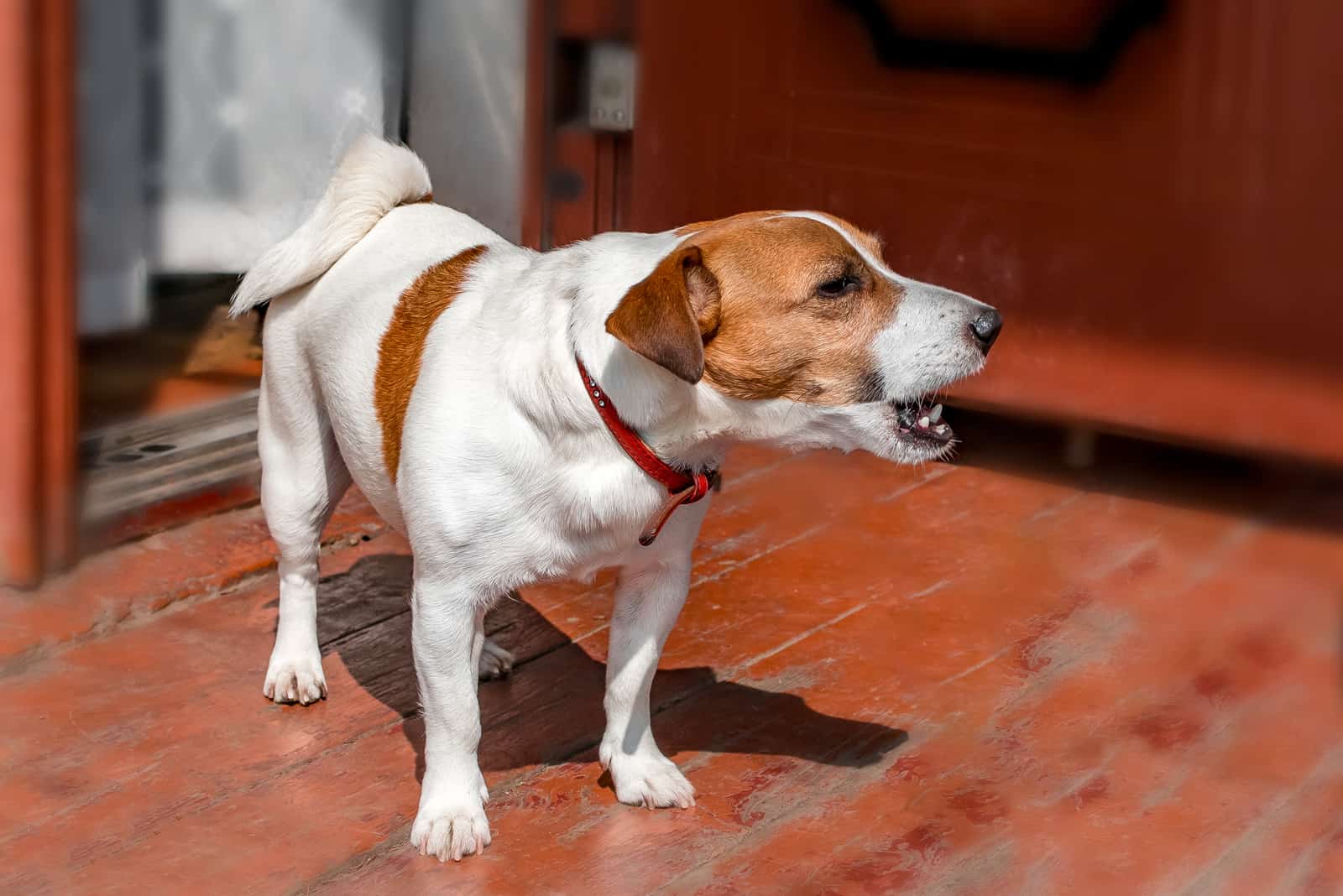
I’m sure you have visited a new place with your dog or met new people many times. In such situations, intense barking or even attempted attacks by your dog are common. While some dogs become aggressive, others show extreme fear when placed in new situations.
A dog’s behavior changing when he is in unfamiliar surroundings will probably not surprise you, but it’s a very different story if you notice an intense and sudden fear in your dog in his own home.
This situation would worry you a lot: what could your dog be afraid of inside his own house? Why is your dog acting weird all of a sudden?
The house should be his safe place! He loves all the family members, he knows every corner of the house by heart, and he loves to take a nap in lots of places he really shouldn’t (you can’t resist your cute puppy and in the end you still allow him to!).
So, why is your dog suddenly scared of something in house?
Why Is My Dog Scared Of The House All Of A Sudden?
If you are a new dog owner and have just brought a puppy into your home, don’t be shocked if your pooch is startled by every (even the smallest) noise.
But, if your dog continues to be scared, even after it grows a little, it is time to find out what could have scared your dog. Maybe he really did see something inside the house that scared him, maybe he heard a sound that was unfamiliar and it scared him, or maybe there’s a person in the house who he is scared of.
Whatever the reason, it is important to detect it as early as possible so that you can help your puppy get rid of his fear and live a happy and fulfilled life under your roof.
9 Common Reasons Why Is My Dog Afraid Of The House
If you can’t figure out for yourself why your dog is suddenly skittish, take a look at our list of common things that can cause fear in your dog.
Try to test if any of the things on the list are a possible reason for the sudden fear in your pet.
1. Dog Is Afraid Of A Certain Room
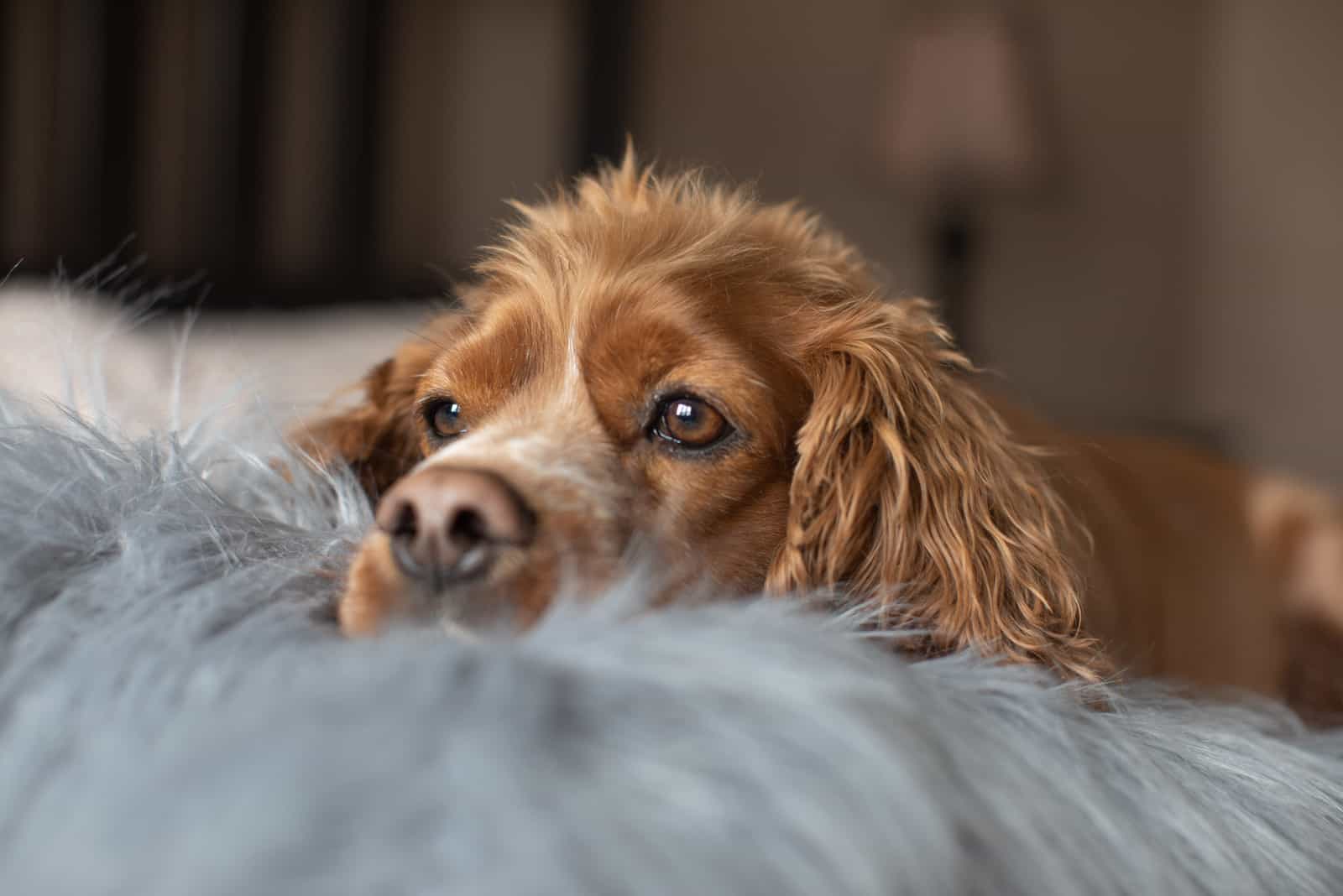
If you notice that the dog does not behave the same in all parts of the house, it is possible that he is afraid to enter a certain room. Why is this happening?
Because a dog remembers certain negative experiences from the past and creates an aversion to repeating such experiences. For example, if a dog has experienced bathing as a traumatic experience, it is very likely that he will be afraid to enter the bathroom in the future. How can you solve this problem?
First, try to bathe your dog as gently as possible, and if necessary, seek the help of a professional. Make sure the atmosphere in the room is as pleasant as possible for your pet and don’t forget to reward him with his favorite treat for good behavior!
In this way, instead of being afraid of a certain room inside your house, you will help your dog to make positive associations with the activities undertaken in that room.
2. Dog May Be Sick
In addition to behaving frightened, your dog may lose weight and show no desire for food or play. Also, it may seem that you cannot find any stimuli inside your house that could have caused your dog to be scared. If this is the case, it is very possible that your puppy is sick!
Before contacting a veterinarian, you can check a few basic things yourself.
See if your dog has a fever, examine his whole body with your hands to see if there are any changes on it. Also, gently touch his ears and teeth. While it may not sound like a pleasant activity, examining your dog’s poop can also show you a lot about his health problems.
If you notice any changes in his body, call your veterinarian and describe his symptoms. It is possible that it is a harmless virus, but by calling, it allows you to find out if there are any more serious medical issues in your puppy.
Regular check-ups can significantly extend the life and quality of life of your pet!
3. Loud Noises Frightened Your Dog
With their sensitive hearing, dogs respond to sounds much quicker than you might even first hear them. Almost every dog will bark loudly during thunderstorms, but some will also become frightened of sounds such as the vacuum cleaner, hair dryer, or dishwasher.
This fear of loud sounds might lead to a huge behavioral problem for your dog. A nervous dog might even start to destroy things inside your house, which is just his way of showing how scared he is.
Aside from the fact that your dog is behaving terrified, its barking and howling can also cause you discomfort over time. How can you help your scared dog overcome this fear? With positive reinforcement!
Every time your dog barks at one of these sounds, pet and comfort him. If it’s a storm, move your dog away from the window and distract him by allowing him to play with his favorite toy.
4. Dog Might Be Suffering From Separation Anxiety
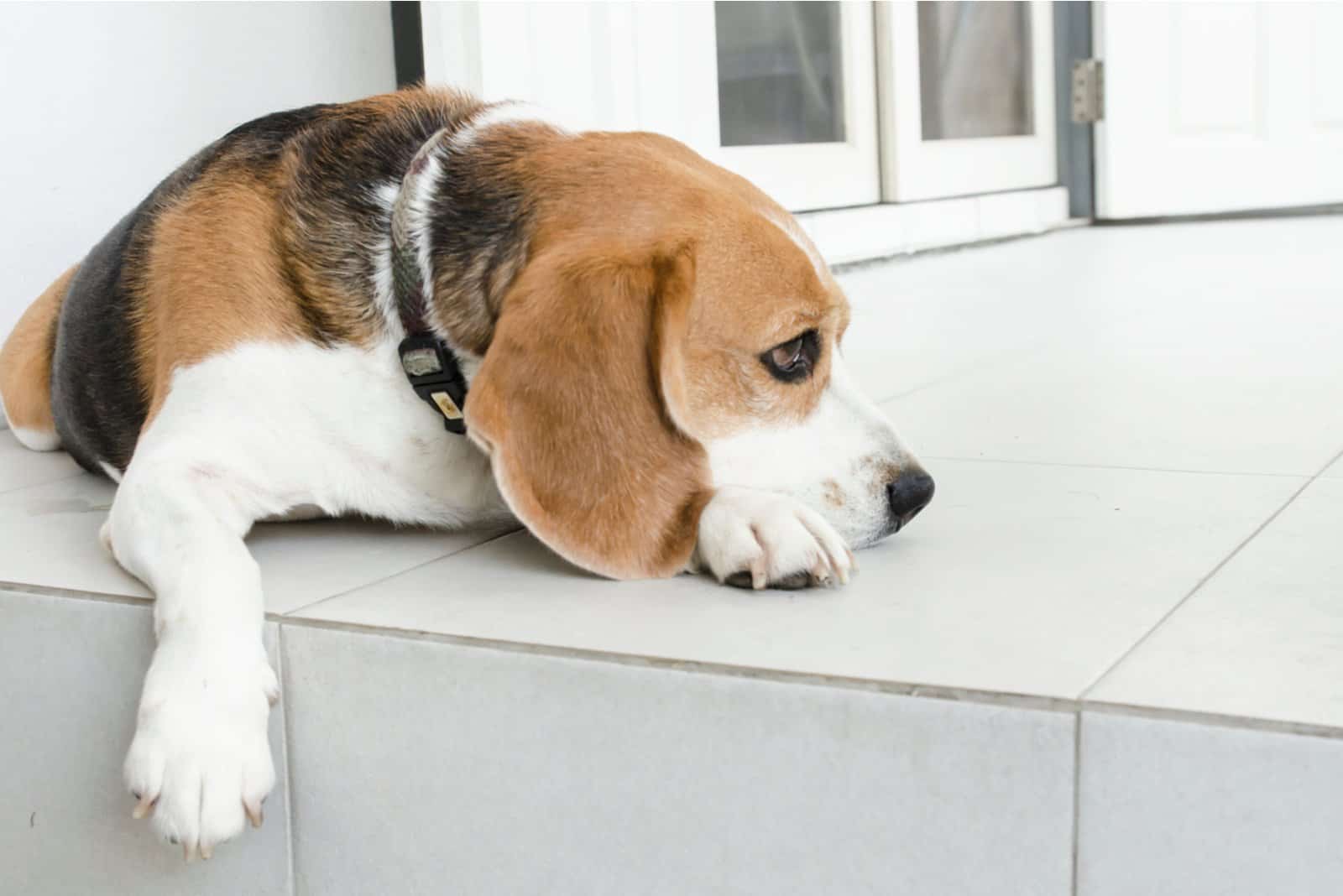
We all know how crazy dogs are for their owners. If they could, they would love to spend all their days walking and playing with their owner. However, some dogs are more attached to their owners than others. Older dogs are especially clingy to their owners.
If your dog starts behaving terrified in the house all of the sudden, it is possible that he is actually suffering because you are leaving him alone.
Pay attention to your dog as you prepare to leave the house. Watching you get ready every day, the dog has probably learned your usual steps: you put on nice clothes, look in the mirror, put on your shoes, and take your bag.
During this routine, you may notice that your dog is whining or looking at you sadly. This is definitely a sign that your dog is anxious! He doesn’t want you to leave him, he wants you to be home with him all day! And you would love to do that all the time, but you know it’s not possible.
Is there any way you can alleviate your dog’s anxiety? Sure! Try not to let him know every time you plan to leave the house. If he doesn’t see you opening the door and leaving, your dog may have fun with some activity and won’t immediately notice that you’re gone.
This way, after a while, your dog will learn that you have to leave the house, but that you will always come back to him in the end.
5. Dog Is Scared Due To Previous Phobia Or Trauma
One of the most complex reasons that a dog behaves scared at home, is the existence of a certain phobia or trauma. This phenomenon is common in rescued dogs, who have had a negative experience before coming to live with you.
This negative experience might include violence, harassment, or neglect. If it seems to you that your dog is afraid of absolutely everything, even you, it is very possible that the main reason is trauma or a phobia.
In such cases, it is best to seek the help of a professional dog trainer or veterinarian. If you try to solve the problem yourself, you could cause even more trauma and in this way, make your dog even more frightened.
A professional will know how to desensitize a dog after finding out what exactly is causing his fear and what has caused trauma to your dog in the past. This kind of fear is a very delicate problem and needs to be approached very responsibly.
6. The Dog Is Actually Afraid Of You
Your dog is your best friend and often the one in your life who listens to you best. However, at times, his behavior may be a little stressful.
You’ve had a long day at work and you just want to relax on the couch watching TV, and he keeps coming and carrying his ball, eager to play since he hasn’t seen you all day. You may not even rudely ignore him, but he might take this act as rejection.
Or, you accidentally stepped on your dog’s tail and he has now developed a fear that something like this will happen again. You may have yelled a few times to finally stop your dog from barking. All of this is normal in our eyes, but dogs look at things a little differently.
If they think their owner is angry at them, dogs can start behaving terrified and think they will receive a punishment for their bad behavior.
If you see a dog behaving like this and pulling back a bit when you try to pet him, prove to him that you are still his dear owner who adores him. Although your dog should know that he must be obedient, do not allow your dog to develop a fear of you and thus, disrupt your friendly relationship.
7. Dog Is Afraid Of New People In The House
Do your friends often come to your home? Have you recently become a parent for the first time? Any new person can cause fear and anxiety in your dog. Even if someone adores dogs and wants to pet your puppy with the best of intentions, he may react with loud barking and growling or he may start to tremble with fear.
Why is this happening?
The most common reason is insufficient socialization of your dog. While still in the kennel, each dog should undergo basic socialization, both with other dogs and with humans. Always check with the breeder about the dog’s socialization and dog training, as this will be very important for his future development.
Puppies should not leave their mothers until they are around 8 weeks of age. These initial weeks are the period when your dog will learn his basic socialization skills.
Even if you are dealing with an adult dog with poor socialization skills, you can still make good socialization progress. Take your dog to places where there are a lot of people and other dogs, such as parks, often. The sooner a dog learns to deal with new people, the less frightened he will be with other people in your home.
8. Your Dog Is Getting Old
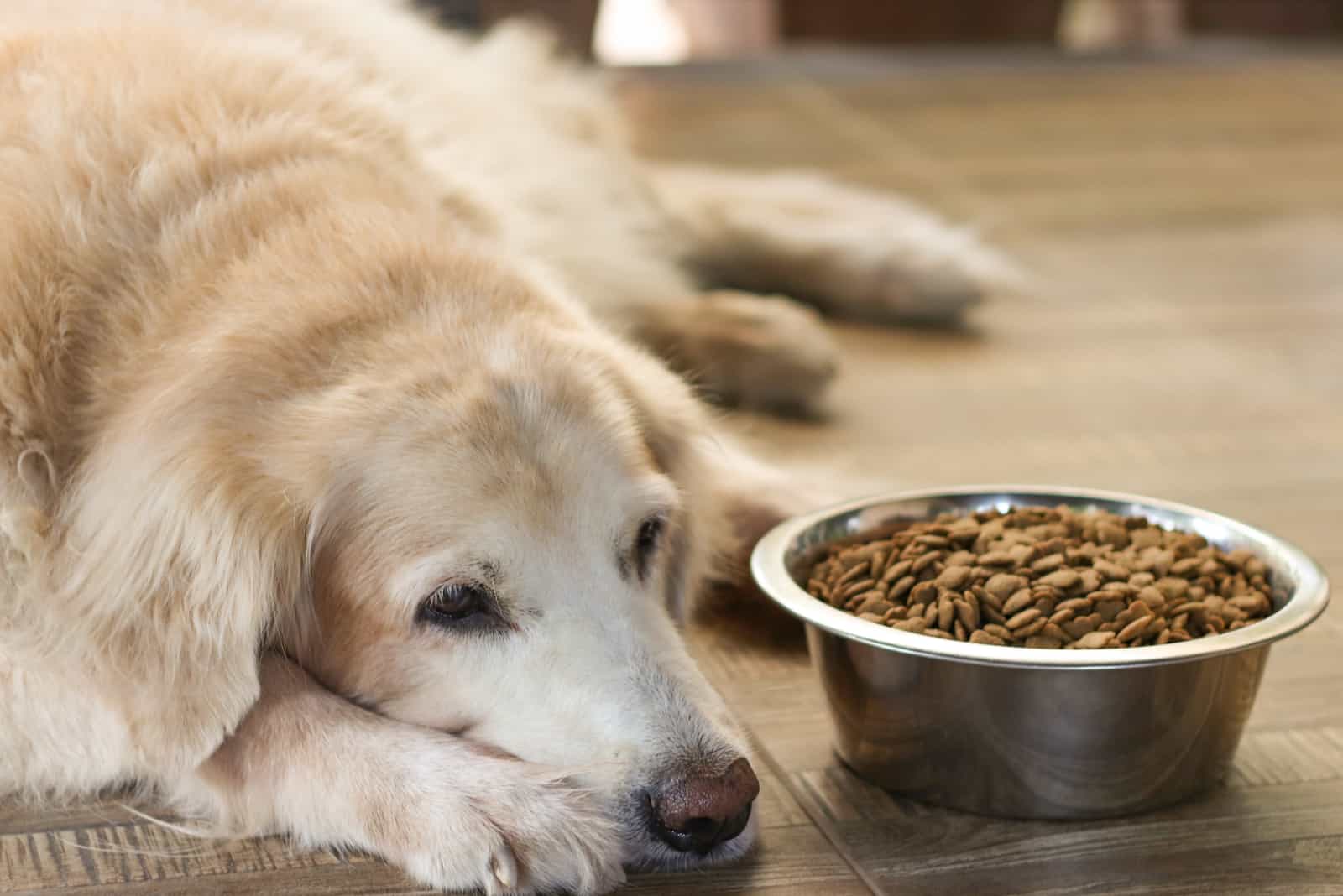
Just like humans, dogs experience various changes as they age. Their senses slowly weaken, their appetite and desire for food decreases, and they have difficulty moving and spend most of their time lying down.
If it seems to you that your dog has suddenly started to be afraid of something inside the house, it is possible that this is a consequence of his aging.
Dogs sometimes even lose awareness of where they are and their favorite rooms may suddenly become unfamiliar to them. Also, older dogs are more easily frightened by any sound or sudden movement.
Your dog deserves the best care throughout his life, but especially in his old age. Make sure your dog has everything he needs and make sure his old age will not be a traumatic experience in any way. Let him get all the rest he needs.
9. Your Dog Is Sensing A Certain Threat
Has anyone ever told you that their dog sensed an earthquake or thunder? While it sounds incredible, there is actually something truthful in this. Thanks to their amazing senses, dogs can sense certain phenomena well before humans.
If your dog is suddenly scared of something, he may have heard something that you did not. In this way, a dog can sense an intruder on your property, or announce some unusual natural occurrence.
Therefore, monitor your dog’s behavior well. The only problem is that we can’t always guess if it’s an actual alert or if your puppy is sending you the wrong signals!
In this list, we have explained some common reasons why your dog may suddenly feel scared at home.
Some of them may seem completely irrational to you, but your puppy is a sensitive being who views the world in his own special way. Therefore, below, we will give you a few tips on how you can help your dog if he is struggling with a certain fear.
What Can I Do To Calm My Dog Down?
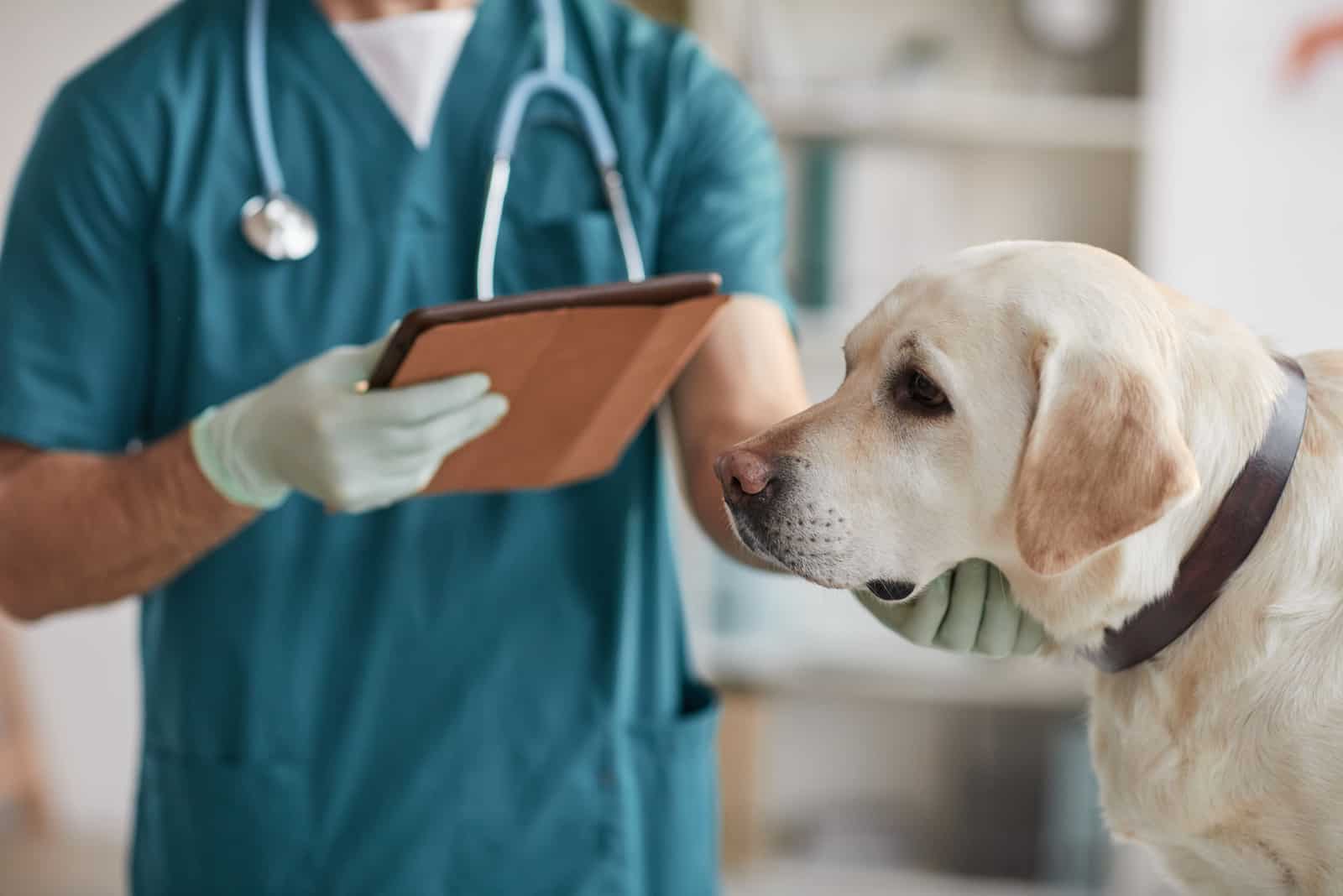
I am sure all dog lovers are now asking what they can do to help their fearful dogs feel safe in their homes again. Are there any guidelines that are helpful when you’re trying to solve your dog’s fear problem?
Yes, there are, so let’s find out everything you can do to help your dog get rid of his shackles of fear.
Step One: Detect The Problem
The first and foremost thing you need to do is to find the exact reason why your dog is scared. If you are sure that there are no physical signs that might be the reason why your dog is scared all of a sudden, then try to find the source of the fear inside of the house.
This may not be easy, as your dog will be afraid to look at what scares him. Try to go through all the rooms with your dog, the item that your dog avoids looking at, may be just the item you are looking for.
Maybe it’s a loud home appliance or one of the people who live in your house that makes your dog feel anxious. Whatever the cause of the fear, the most important thing is to identify it first.
Step Two: Alleviate The Fear
Although it seems to all of us that our dogs communicate with us, we can never really be completely sure how well they understand us. However, our support, cuddling, and telling them that everything will be fine, can significantly alleviate a dog’s fear.
While it may not work right away, after a while you will most likely notice that your dog is a bit relieved. Never confront your dog with the source of his fear directly because you could scare him even more. A better way forward is to gradually solve the problem and encourage your dog to feel safe in his home.
Step Three: Talk To A Vet
If you’ve tried everything you can and still haven’t managed to get your dog free of his feeling of fear in your home, it’s time to contact your vet.
Don’t be afraid of this step. This does not necessarily mean that something is wrong with your dog. If just one call separates you from having a happy and healthy dog that shows no signs of fear or anxiety, talking to a vet doesn’t sound scary at all, does it?
If the vet decides it is necessary, he may prescribe an anti-anxiety medication for your dog.
I believe it is very difficult for any dog owner to watch their pet struggle with a particular difficulty. All you want is to see your dog happy again, without any worries in the world. Hopefully, this short list of tips will be helpful in alleviating your puppy’s feelings of fear.
Bottom Line
A dog, man’s best friend, is an animal that clearly shows all its feelings. If he is happy he can jump on your head all day long, if he is excited he will lick you with joy, and if he is sad he may isolate himself and take a moment just for himself.
And, what could have happened to your dog to become overwhelmed by fear? Is your dog suddenly scared of something in house? We have tried to help you with this problem with our list of common reasons why your dog might be scared all of sudden.
Hopefully, you will be able to detect the exact problem your pooch is dealing with. Don’t be worried, since fear periods are perfectly normal and every dog, especially senior dogs, will get scared of something in their lifetime.
However, I am sure you want your home to be an oasis of peace for your furry companion. So, learning what the main cause of your dog’s fear is will help you to find a solution for this problem.
Just be patient and persistent in your efforts to help your dog. Also, listen to his needs and follow all the possible signals that are not so obvious. You’ll notice them if you carefully observe the behavior and reactions of your dog.
The sooner you free your dog from fear, the sooner he will become the happy and carefree dog you know and love!
